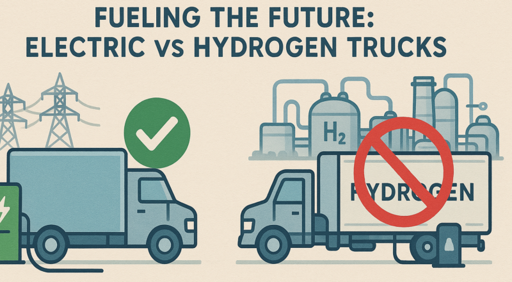- cross-posted to:
- [email protected]
- cross-posted to:
- [email protected]
The perfect drive train was invented more than twenty years ago by a small Japanese holding company named Toyota
Mating two motor-generators with a combustion engine via planetary gear set allows for 90 percent of the benefits of a pure electric vehicle but with a much smaller battery
They casually get double the mpg of a pure gas vehicle on the highway, and in the city they can drive several miles on batteries
TRUE PRIUS HAS NEVER BEEN TRIED
The thing is, electric trucks already serve basically all Europe needs. There are mandatory breaks every few hours (4 I believe) which is about the range you get on one 80% charge of current trucks. Meaning they charge, drive, charge and rest, drive, charge and rest and so on. The side benefit being that E-Trucks can haul 40 tons up the mountain without dropping down to 20kph
There are barely enough rest stops in many places of Europe to accommodate truck drivers just taking their mandatory rest breaks. Look at the stops along any busy German highway at night, it’s pure pandemonium. There’s an estimated 20 000 truck parking spots missing in Germany alone: https://www.adac.de/news/lkw-parken-an-raststaetten/
Now imagine that every single one of those spots (not the missing ones, not the new ones, all of them - millions) also needs a charging station. That’s a monumental undertaking.
I’m not saying it’s impossible, but it’ll be extremely hard and would take a lot of time and money. This isn’t a “we’re halfway there” situation, we haven’t even started.
You’re absolutely right, but that is something that won’t change if trucks keep being electric or hybrid. Besides, E-trucks still have a use for shorter distances such as trips from a dispocentre to supermarkets for example. And there you can see part of the problem, lacking ingenuity and braveness. Nearly every supermarket could have PV on the roof, for their own use and to charge delivery trucks. Effectively reducing the daily costs by a lot.
Plus they still benefit from advances in both battery storage improvements, ICE improvements, and electric infrastructure rollouts.
Hydrogen is such an absurdly expensive and literally explosive fairy story.
Battery electric is here now and isn’t just cheaper to run than gas, it’s actually cheaper in total cost of ownership.
Removed by mod
What makes you think so, or do you say that based on the content alone? I don’t have the impression they are pro-battery or against hydrogen, also don’t think they would let themselves be paid without mentioning someone did that.
Removed by mod
Trains are the answer. Last mile with cars or trucks is okay. But not for hundreds or thousands of kilometers.
Removed by mod
Hydrogen is an absolute pain to store and transport and all the practical hydrogen production methods are dirty right now. It just isn’t even a real option even after years of development.
Removed by mod
That’d be green hydrogen. Gray or blue hydrogen, both sourced from methane, is not produced using electricity.
Green hydrogen is practically speaking not cost-effective with current production parameters, and as such, gray and blue rules the day. Hence, hydrogen is effectively just another form of fossil fuel for the time being.
The fossil fuel industry pushes the hydrogen fairy tale partly because they’re the ones who can produce and profit at scale from hydrogen and partly because no one can actually switch to hydrogen for a goodly while yet.
Nah, it’s the power plants & grid managers.
Private solar panels are reducing electrical grid dependancy and they need home BEV charging to compensate, because they can’t monopolize hydrogen production as easy as the grid.





